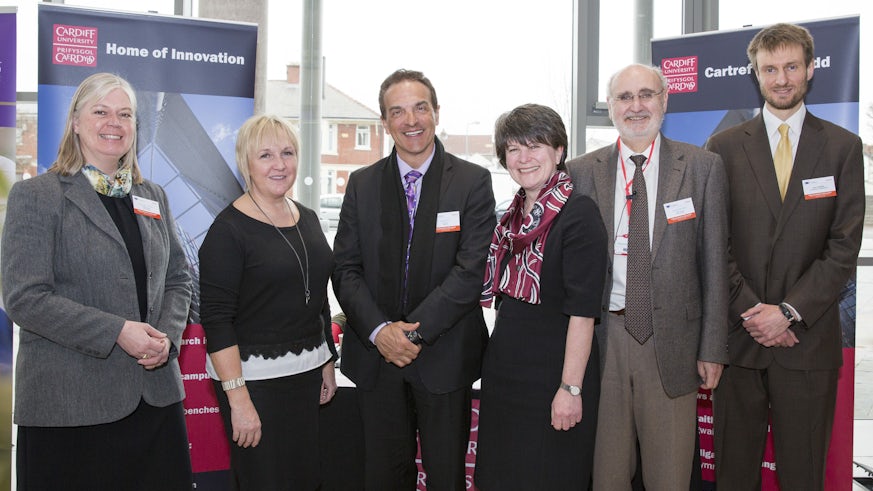Building bridges between business and research
22 March 2016

Experts gather at the University to promote private sector interaction with EU funded research
The University has played host to a number of leading figures from industry and academia as part of an event set up to promote ways in which collaborations can make the most of European funding.
The event centred on Marie Skłodowska-Curie Actions (MSCA), a programme set up by the European Commission 20 years ago whereby grants are provided to researchers at all stages of their careers to help equip them with the necessary skills and international experience for a successful career in the public or private sector.
The MSCA grants give researchers the opportunity to operate in attractive working conditions and the opportunity to move between different countries, sectors and disciplines.
The one-day event, held in the University’s Hadyn Ellis Building, set out to encourage more businesses and industry to interact with the MSCA grants, not only for the benefit of the researchers but also for the benefit of their own research programmes.
Prof Nora de Leeuw, Pro Vice-Chancellor, International & Europe, Cardiff University, said: “A lot of companies do not necessarily have the facilities, financial resources or human capital to run their research projects as they would like to.
“By becoming involved in the Marie Skłodowska-Curie Actions and collaborating with academic research organisations, these companies can benefit greatly by having access to world-leading equipment and integrating highly skilled researchers into their innovation projects.”
“Cardiff University is very privileged to be hosting this event, as it will provide the private sector with an opportunity to find out more about the grants and the various ways in which they can get involved with the projects.”
As part of the event proceedings, Paul Harris, from the European Commission, gave an overview of the MSCA programme and showed how private sector participation has been steadily growing. “The financial model of the MSCA is much simpler, compared with the rest of the Horizon 2020 programme, which also makes it an attractive scheme for organisations such as small and medium-sized enterprises (SMEs),” he said.
Dr Jean Botti, from the Airbus Group, shared his views on successful partnerships between industry and academia and the Airbus approach to participation in the Horizon 2020 programme, including a recommendation to “further increase the participation of large industry and SMEs in the evaluation panels.”
An Jansen, from Cardiff University’s strategic partner institution KU Leuven in Belgium, shared her institution’s approach to partnering with the private sector in MSCA projects, a process facilitated by a dedicated team of Industrial Research Managers working alongside academic colleagues. “These are professionals employed, not just because of their scientific expertise and knowledge of funding programmes, but equally on the basis of their professional networks,” she explained.
Professor Julie Williams CBE, Chief Scientific Adviser for Wales, outlined Welsh Government’s innovative approach to combining national, Horizon 2020 and European Structural and Investment Funds (ESIF) to build scientific capacity and support industrial research through the Sêr Cymru II scheme.